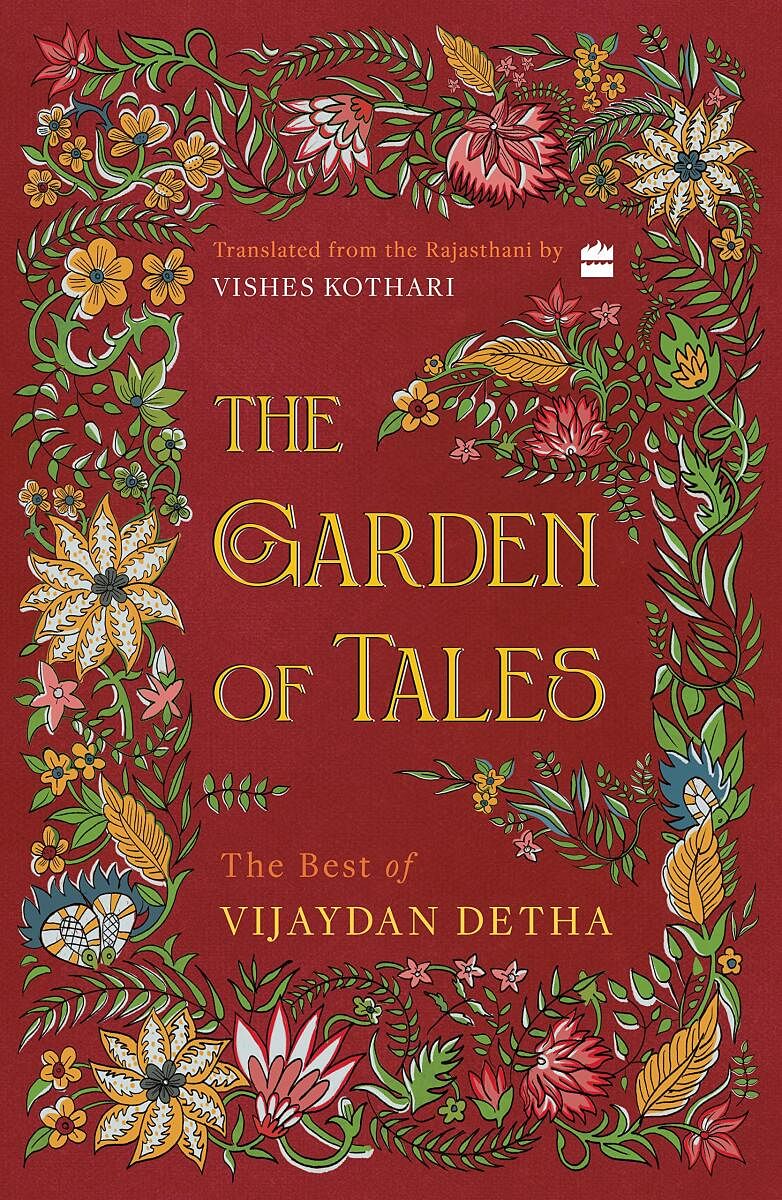
Let me put this upfront: what a treasure house of stories ’The Garden of Tales’ is — all of them charming, whimsical and steeped in folklore. The author of these stories, Vijaydan Detha, was a pioneer in drawing literary inspiration from India’s rich folk traditions, especially from Rajasthan. He ran the risk of being considered a lesser writer due to this and being dismissed as an ‘archivist’, but eventually came to be regarded as one of the most important writers of Rajasthani literature.
The translator of this book, Vishes Kothari, writes in his foreword about how the traditions of storytelling in Rajasthan have always been incredibly varied, comprising love stories, fables for children, religious stories and many others. Detha is widely acknowledged as the writer who gave shape to these stories. He also made the common man the inspiration for these tales, and in doing so, effectively bucked the prevalent somewhat insular traditions of those times.
The stories themselves reflect the variety of folktales that inspire them. A demon called Aasmaan Jogi, who imprisons young women in his fantastical palace in the sky; an eccentric judge who chooses to deify a dog; a ‘God’s son’ forced to assume the guise of a donkey; a thief who finds out that, ironically, telling the truth serves him well.
Delicious humour
The women characters are equally interesting, and far from being merely supporting characters or passive onlookers to whom life happens. The Aasmaan Jogi, for example, is tricked by a young woman who conspires to free herself and the others imprisoned by him. A princess on agreeing to marry a donkey, remarks with asperity “Why, most men anyway are worse than donkeys.” There is delicious humour and sly wit at play here. A female acrobat dares to challenge a king. There are women characters bold enough to express their physical desires openly. A royal priest is taught a lesson by a sweeper. The reader pauses to reflect that it is such a pleasure to read stories with a host of strong women characters.
The two outstanding stories in this collection have women characters playing pivotal roles. The short story ‘Double Lives’ is truly astonishing in that it seems way ahead of its times.
Nuanced and layered, it deals with a same-sex relationship. There is social commentary inherent in the reason why two women start having a relationship in the first place; it is also all the starker when one of the women ‘becomes’ a man. The author underlines how uneven conventional relationships are where the balance of power is concerned. The man tends to be authoritative, wanting his writ to run large. The woman is merely a vassal serving her husband and seeing to his needs. She has no agency in bed either. His desires overrule hers. In contrast, the same-sex relationship is depicted as a relationship where both partners view each other as equals. Sometimes, the fact that a story like this has been written is by itself revolutionary.
Real and magical
The last story in this collection has a very daring climax. The woman protagonist here is compelled by circumstances to become a prostitute. She is clearly a victim, having no say in how her life pans out.
Torn asunder from all conventional ties, she hardens as a person and that hard life diminishes her. In the shocking climax, this causes her to cross all lines. Detha’s power as a writer lies in the non-judgmental tone in which he narrates the story. It’s a very powerful story that shows that when a woman loses all control over her body or life, she cannot be made to follow conventional rules that govern life.
There is much richness in the settings of all the stories. No doubt this has to do with the fact that the roots of these stories lie in folklore. The real and the magical are combined seamlessly, some of them infused with quiet satire, alongside an embedded message. The book has been fluidly translated by Vishes Kothari. It helps that the language is simple, for it serves the stories well. It is truly wonderful to enter Detha’s magical world, and the icing on the cake is how women play such a strong part in so many of them.